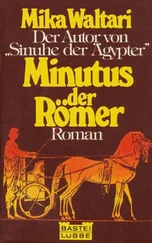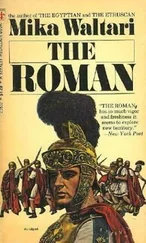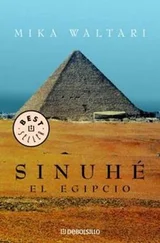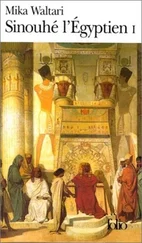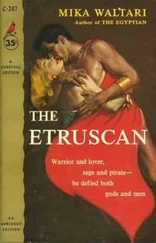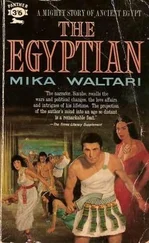On reaching the Sava River he sent his men in their thousands to the woods to fell trees, or to the riverside to saw planks; wherever he appeared order and discipline took the place of chaos. But once again the heavens opened and floodwaters scoured away his works as if they had been spiders’ webs. Rain fell in torrents from leaden skies, and when Sinan the Builder saw the river grow to a thundering cataract he calmed himself, sent his men to shelter, and ordered the slaughter of many sheep and heifers, saying, “Eat, drink, and rest until the rain stops, for nothing happens contrary to the will of Allah and the Sultan can hardly be in a greater hurry than the Merciful and Compassionate. Though the delay should cost me my head, I rejoice, for that head aches with figures and plans, and I cannot sleep at night for thinking of the bridge I must throw across the river Drava when we reach it.”
Sinan the resolute, who had spared neither himself nor his men, now burst into tears of exhaustion. I put him to bed in the ferryman’s hut and gave him hot wine to drink, so that he slept at last. In his sleep he babbled of a great mosque that he would build, whose like the world had never seen.
For five days the rain came down in sheets, and with my friend Sinan I suffered all the agonies of delay, pacing back and forth over the floor of the little hut. At any moment the army might march up to the riverbank, when the Grand Vizier would have our heads cut off and thrown into the river. Yet my fears were groundless, for not even Khosref, the road makers’ pasha, appeared. At last a soaked and mud- bespattered messenger reached us through the downpour to report that the whole army was fast in a bog and that the Sultan had called a halt until the rain stopped. The messenger was so exhausted that he had thrown away his ax. His bell was choked with mud and he lacked strength even to sprinkle perfume from his flask, but sank to the ground proclaiming that Allah was one and indivisible and Mohammed was his Prophet. Blood then poured from his mouth, for he had run for many days and nights through drenching rain and along slippery bypaths, and his strength was at an end, although under normal conditions these runners could cover the distance between Istanbul and Adrianople in a single day.
Suleiman and Ibrahim submitted to the will of Allah and no one was punished for the delay caused by the rain. As the army marched slowly onward, many perished in the swollen rivers despite all precautions. Numberless pack camels, having had enough of the miry roads, closed their eyes and nostrils and sank down beneath their load, never to rise again.
The summer was already far advanced, bright poppies flowered on the plains of Hungary, and I had had more than my fill of the willow thickets and bogs of our route, when at last at the head of the army we reached the banks of the still flooded Drava, by the town of Esseki. The Turkish garrison had long since given up hope of crossing it and had paid for their feeble efforts at bridge building with scores of drowned men, for the current tore away the mightiest timbers as if they were straws.
In the town of Esseki we met at last our great chief, Khosref-pasha. He stroked his beard and surveyed the swirling Drava thoughtfully. At length he said in submissive tones, “Allah is great. Allah is the one God and Mohammed is his Prophet, peace be with him. The Sultan can scarcely demand the impossible of me, since I married his cousin and am thus related to him by blood. But Ibrahim, Grand Vizier and Seraskier, is a ruthless man. I must therefore bid farewell to my gray beard. You, my dear children and sturdy builders, would be wise to make your peace with Allah.”
His men had formerly accompanied Selim the implacable on his many campaigns; they had built bridges over numberless rivers from Hungary to Egypt and by means of skillful sapping had reduced many fortified cities, including Belgrade and Rhodes. But even these veterans began weeping and tearing their beards as they cursed the Drava, the treacherous land of Hungary, King Ferdinand, and especially his brother, the Emperor of the unbelievers. But Sinan, having silently waited until the eldest among them had said their say, stepped forward and began, “Why, think you, did I cause thousands of camels and oxen to drag huge balks of timber from the hillsides of five countries to the banks of the Drava? Why have I sent the best smiths and carpenters to this miserable hole Esseki, on forced marches along unspeakable roads? As long ago as last winter detailed information was sent me at the Seraglio about the breadth of the Drava, the nature of its banks, and the strength of its current. Night and day I’ve wrestled with figures, that I might build a mighty bridge across this river. Shall all this have been in vain? No! I will not throw away my rule, compasses, and tables without at least attempting the great task.”
The master builders, who had a lifetime’s experience behind them, looked pityingly at the younger man and said, “Who is this Sinan, who gained his knowledge sitting on silken cushions in the Seraglio? The profoundest wisdom consists in submission to the will of Allah, and surely in this matter Allah has made his meaning plain.”
Sinan glanced at the broad river, at the timbers stacked on the bank, and at the rafts already built. Then falling on his knees he kissed the ground before Khosref-pasha and said, “I’m young, but I’ve listened to the wisdom of the foremost bridge builders of our time. I have read the works of the Greek strategists and studied the description of the bridge that Iskender the Great threw across the river Indus. Give me your hammer, noble Khosref-pasha, and in the sight of all raise me to the rank of your son. Then, despite all obstacles, I will bridge the Drava. Ride meanwhile to the Sultan and beg him for three days’ grace. He will need those three days himself to rest his troops. But I must ask for the help of all the thirty thousand janissaries.”
Khosref-pasha shook his head and for a long time he demurred. Yet there was something so persuasive in Sinan the Builder’s assurance that at length he gave in.
“Well, I will be a father to you,” he assented, “and share your disgrace if you fail. But I mean to share the honor also, if by the help of Allah and his angels you achieve the impossible. Take my hammer-and let all of you, my sons, obey young Sinan!”
He handed his jeweled and gold-hafted hammer to Sinan, laid a hand upon his shoulder and declared in the presence of many witnesses, “You are flesh of my flesh, my son Sinan the Builder.”
He then rapidly recited the first sura in confirmation, sent for his horse, and set forth with his suite to meet the Sultan.
I hardly know how to account for Sinan’s bold behavior unless it was that having been born in this region he knew the ways of Serbian rivers, or perhaps had reason to believe that the rainy spell was now at an end. Be that as it may, by next day the level of the water had fallen and Sinan sent thousands of men into the river to sink caissons and fill them with rocks, and to drive massive piles into the river bed at points carefully calculated and marked in his plans.
Each end of the bridge was strengthened by sturdy abutments to withstand any further floods, and work did not cease even at nightfall. Swarms of naked men waded through the dark waters by the light of torches and flares. Above the rushing of the torrent, the din of hammering and sawing could be heard in Esseki itself. Sinan the Builder took further advantage of his new authority by promising unheard-of sums to every man who hastened the work, and ordered the Marabouts to proclaim that all who drowned or were crushed by falling timbers or in any other way lost their lives should win direct to Paradise exactly as if they had fallen in battle against idolatrous unbelievers. Even the janissaries caught something of his dauntless energy, for unlike the experienced engineers they could form no clear idea of the magnitude of the task.
Читать дальше

